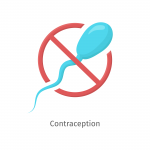When the House of Representatives says it will "defund" Planned Parenthood, it sounds simple. But it's not – because lawmakers will have to enact new rules about who gets paid via Title X and Medicaid. That would mean that many women (and some men, too) wouldn't have access to a wide variety of both contraceptive, and general, health care.
Policy & Ethics
Physicians give advice, that’s what we do. But a recent meta-analysis suggests that "what people advise others to do is often different than what they choose for themselves.” Here's why.
The actor and musician knows how to convey a message that effects medical change, helped in part by his visit top be with sick kids at Children's Hospital Los Angeles. Now, let's see if Hollywood follows suit.
A young man who recently received a lung transplant, following a terrible case of pneumonia that caused his lungs to collapse, has died. He made national headlines because his petition to receive new lungs was initially rejected because he had smoked marijuana.
Several years after Obamacare was approved, healthcare costs continue to rise in America. The question of why – and, perhaps more importantly, how much of these costs should be covered by the government – continue to spark intense political debate. New research may shed some light on this issue.
Director of Medicine Dr. Jamie Wells attended the annual Yale-West Point Civil-Military Service Symposium, where issues of veterans health policy were extensively discussed.
The IARC monograph program on Evaluation of Carcinogenic Risks must be reformed and brought into the 21st century – or it should be abolished
The public is becoming increasingly skeptical of science. It's the natural outcome of a society that's hyper-partisan, and one that's told to be ever-more distrustful of expertise and authority. It's not surprising, therefore, that research perceived as even mildly controversial is immediately met with the charge "Follow the Money!"
“When I use a word,” Humpty Dumpty said in rather a scornful tone, “it means just what I choose it to mean — neither more nor less.” - Alice in Wonderland
Science is, above all, a methodology designed for discovering objective “truths” about the natural world. All lawyers and politicians speak quite highly of Truth, and all routinely claim that it is on their side, rather than their opponents’, however, the real function of legal and political debate is not to discover truth, but to win. And, whenever “winning” is the prime directive,
There has been a great deal of hyperbole and confusion about the recent and future direction of science and health in America, both in the applied and basic research sense, but for the public it's hard to separate what is a legitimate worry versus what has been manufactured due to lingering animosity over a contentious 2016 campaign season.
As usual, the loudest political activists have hijacked the discourse.
But not all scientists are on one side of the political aisle, and not everyone wants to march against the federal government based on guesses about what policy directions may be. Instead, many want to make a positive difference.
You don't need to be against something to be for something.
Faced with the ever-growing, internet echo-chamber as well as the many other sources of information available to us, it's worth taking a moment to listen to the radio show, On Being. It is a restorative program that gives you the chance to enjoy the beauty of science, and the scientific enterprise.
Here's the real scoop from someone who worked at the highest levels in the private sector, who started the Science 2.0 movement, and who now runs a pro-science consumer advocacy non-profit: Corporations do not give people money to do something they are already doing for free.











